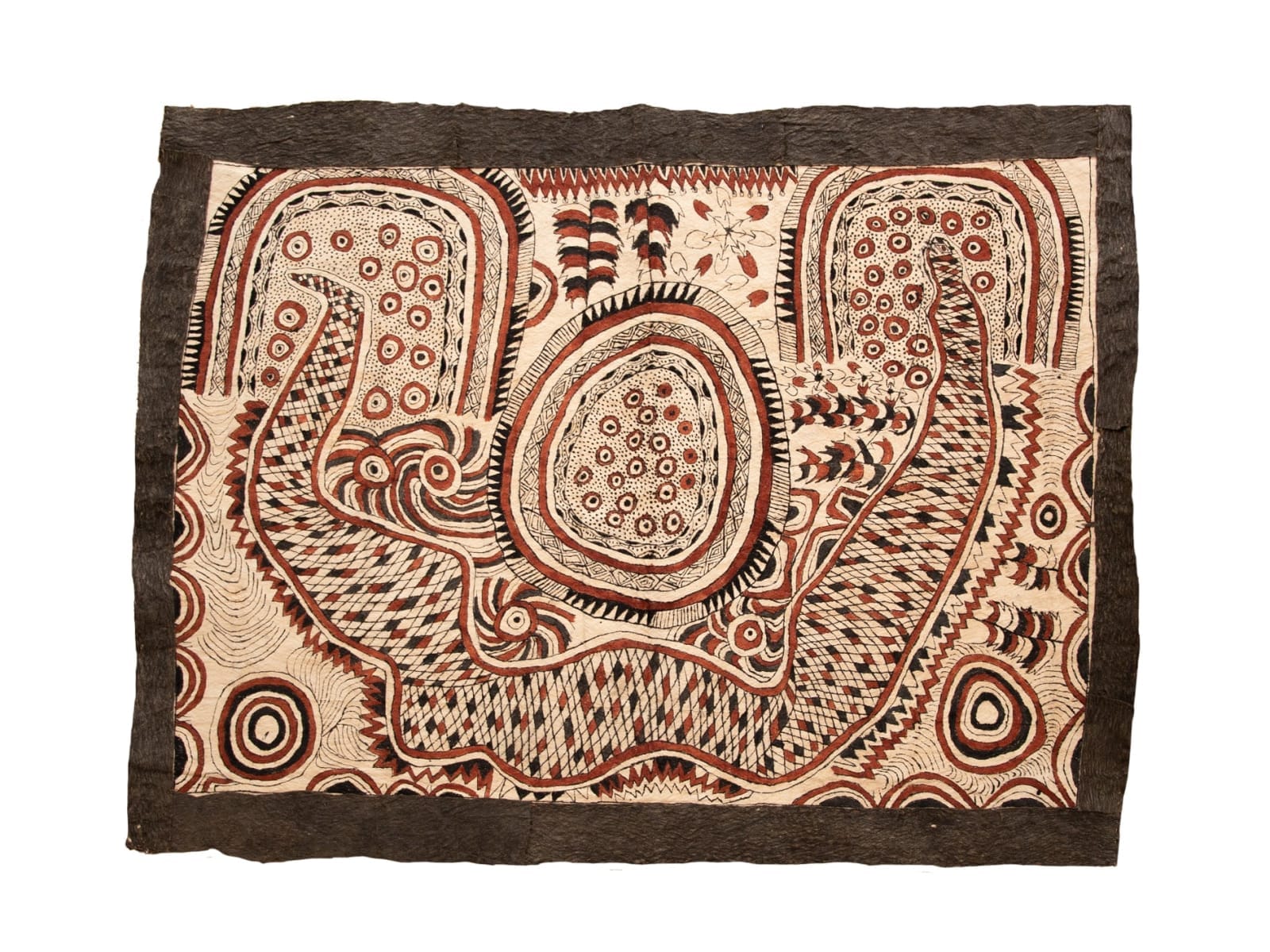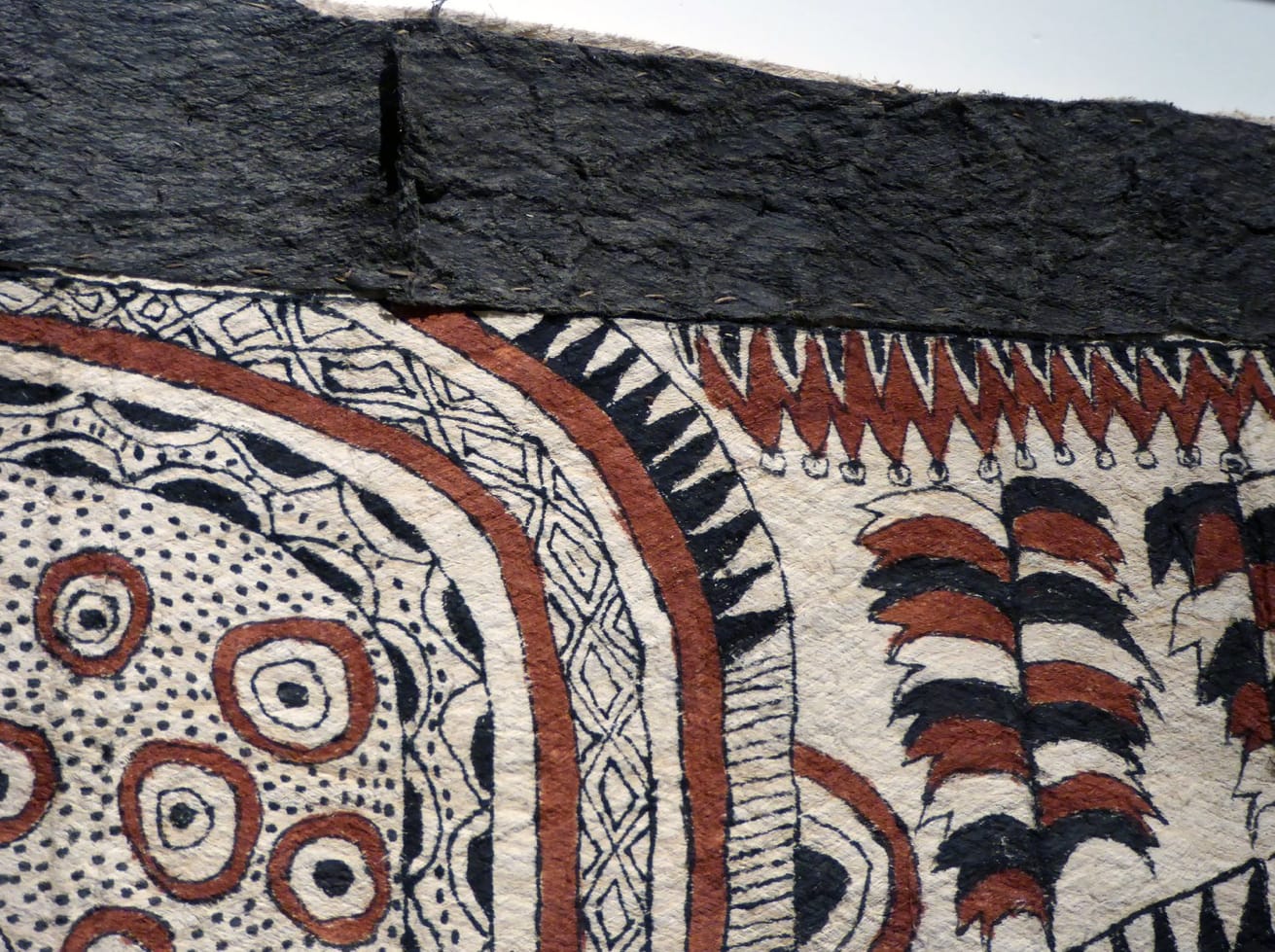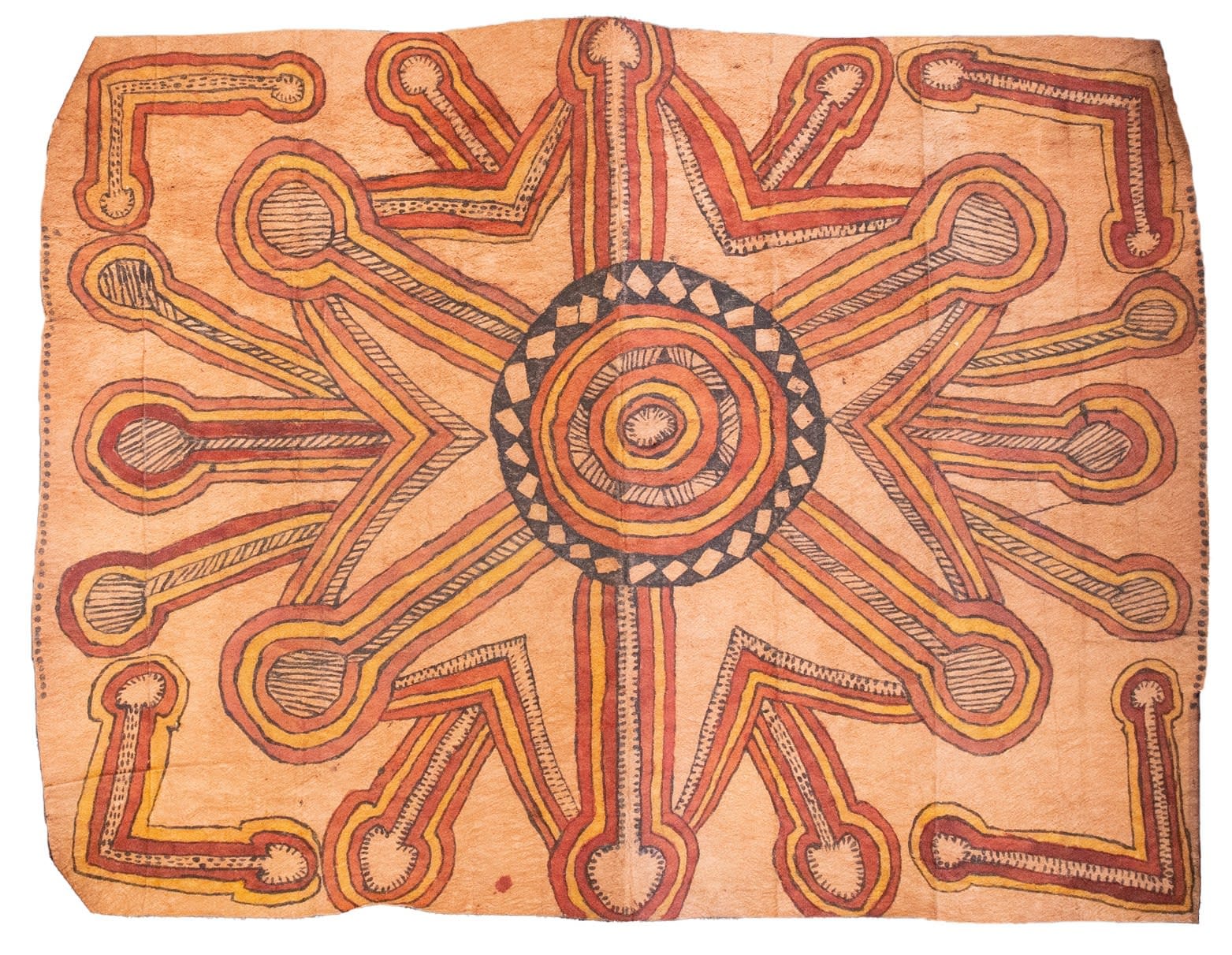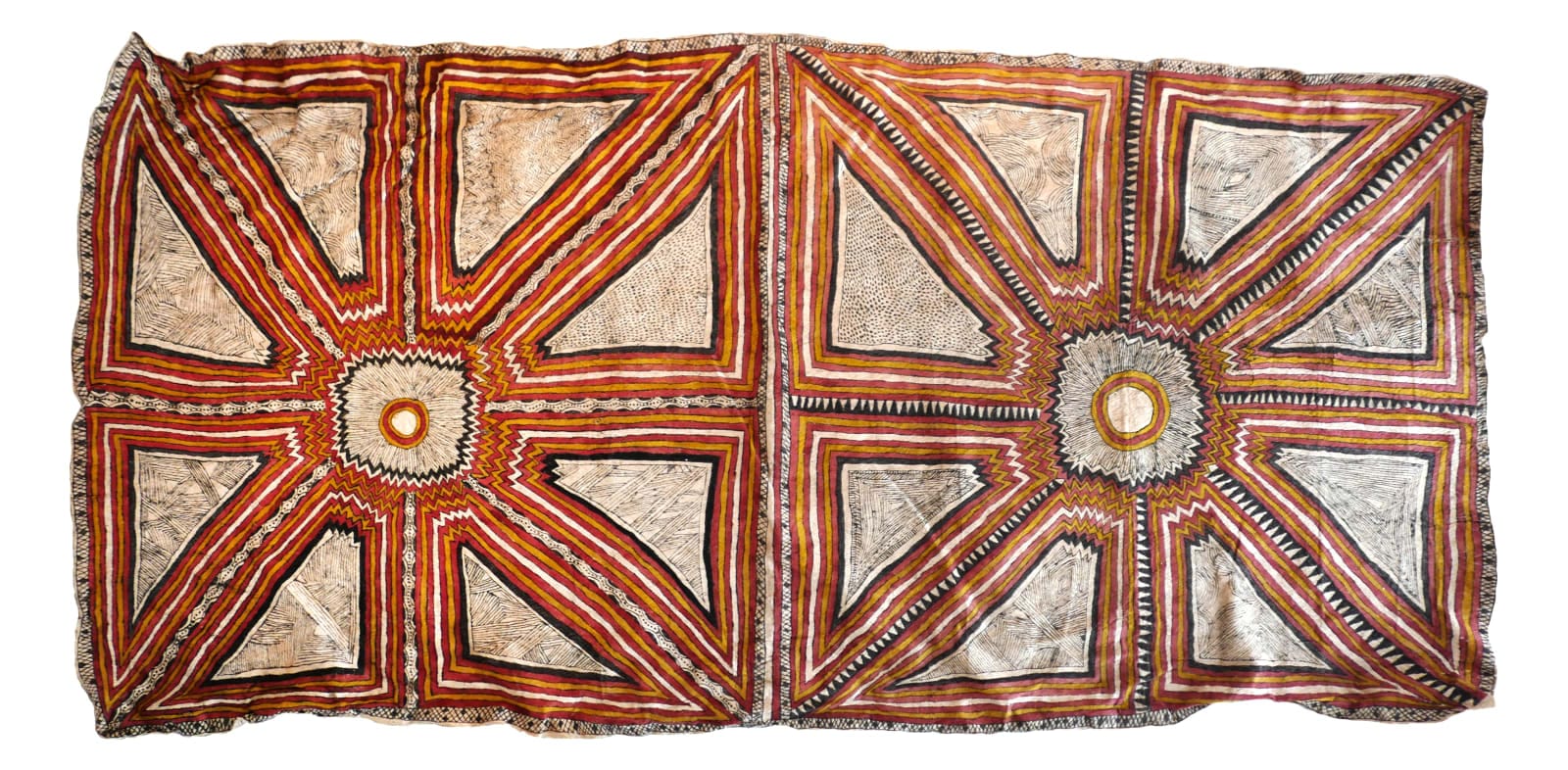Ilma Uglobari (Savari) comes from the remote Anahobehi Village in Papua New Guinea. She belongs to an Indigenous group of people called the Ömie, whose lives are spent close to nature, deep in the slopes of Mount Lamington. For the Ömie, women are keepers of heritage and history. Following this tradition, Uglobari uses her art as a tool to share her dying culture with the world. While doing so, she also highlights the important role women have played in preserving the history of Indigenous New Guinea tribes.

Uglobari creates contemporary textile paintings that traditionally were known as tapa cloth artworks. These are paintings made on fine-grained, beaten cloth that was made from the inner bark of native mulberry or fig trees, cloth that, for the Ömie, was infamously made by Suja, the first woman. Traditionally, these cloth artworks would be worn as nioge, traditional skirts that can also be used to decorate homes and for several ceremonial purposes. The motifs used in these tapa cloth artworks are heritage iconographies borrowed from traditional Soru-e tattoos. These are icons that have come from close observations of the natural world, all to preserve stories of everyday life and Ömie spiritual teachings.

In her practice, Uglobari also often harks back to the practice of her mother, Sarah Ugibari, who was also an Ömie painter. This means that even in her contemporary art practice, she is staying true to the ancestral pride and spirit of her tribe that recognizes women as identity and history keepers. Thanks to this, Uglobari has been recognized globally, including being the first Papua New Guinean to show at the London Royal Academy of Arts. Pieces by Uglobari share the influence of Ömie women far and wide, cementing their roles as heritage keepers on the international stage. This is why her works are aligned with the United Nations Sustainable Development Goals of Gender Equality and Reduced Inequalities.

Staying true to tradition, Uglobari’s pieces are also made with all-natural tools. The pigments she uses are pounded and chewed leaves, roots, volcanic ash, and fruit pulp. Meanwhile, she uses fine bat bones to sew and cut the bark cloth into sizeable pieces.

Writing for The Protagonist Magazine, social anthropologist Dr. Birgitta Huse said that Uglobari’s 2022 show at the Rebecca Hossack Art Gallery is indispensable for anyone curious about Papua New Guinea. She also elaborated that walking through the exhibit, she thought, “At which point does a ‘tradition’ develop into being perceived as art, how do we define a ‘tradition’ and how do we define ‘art’? Does the general public in the UK possess any criteria for looking at an individual artist’s barkcloth creations at hand? How does the artist feel about having her work exhibited in a city she has never been to?” These are all wonderful questions for viewers to ponder as they immerse themselves in Ömie culture.
Ilma Uglobari (Savari)'s bark cloths are proof of the enduring cultural heritage of the Ömie people and the vital role of women as keepers of tradition. Through her contemporary textile paintings, Uglobari preserves and shares the rich heritage of her tribe with the world, using natural materials and motifs rooted in Ömie spiritual and everyday life. At the end of the day, Uglobari's art invites viewers to engage deeply with Ömie culture and the intersections of tradition and art. All while urging audiences to appreciate the cultural narratives embedded in her creations.
Find out more about bark cloths by Ilma Uglobari (Savari) on her gallery’s Instagram @rebeccahossackartgallery.
